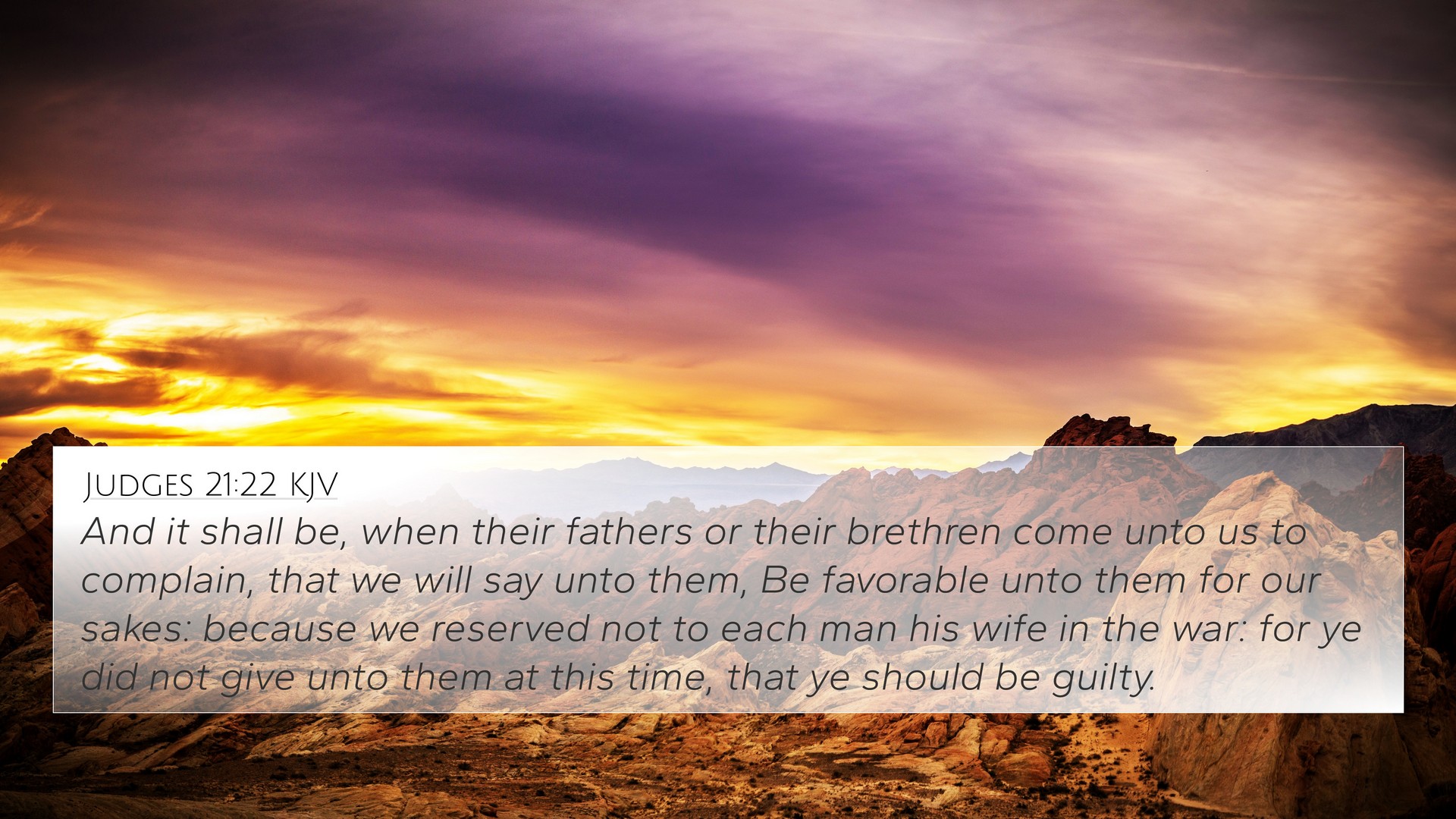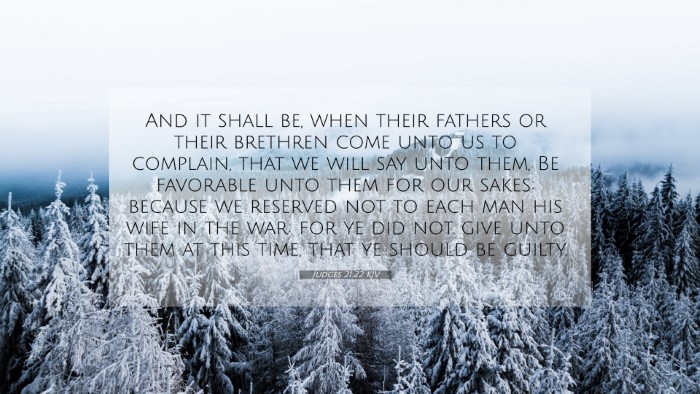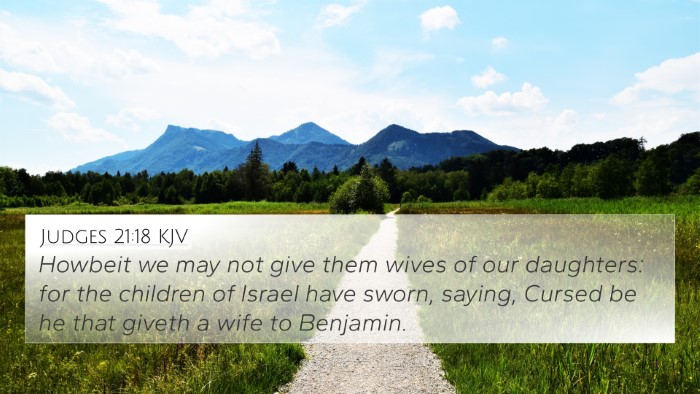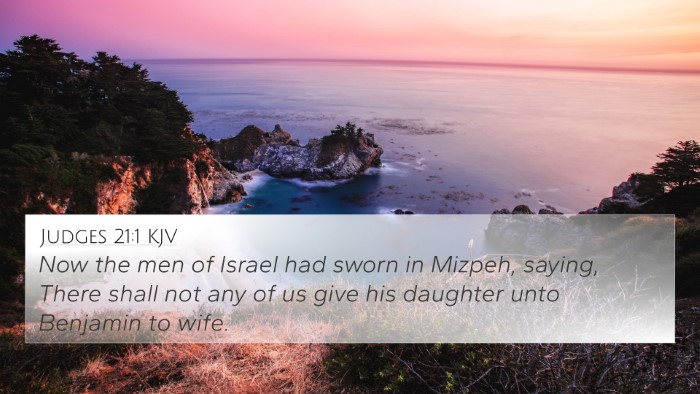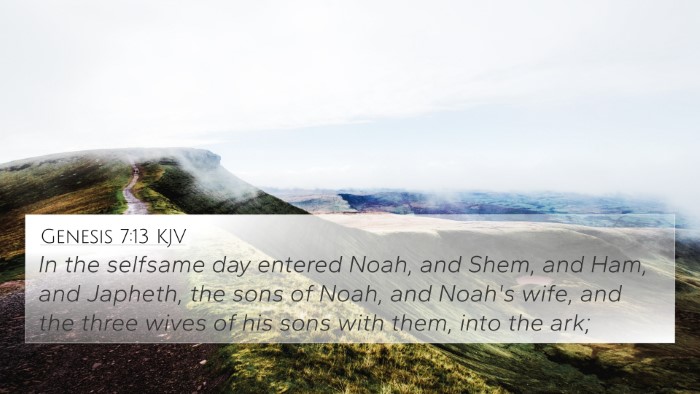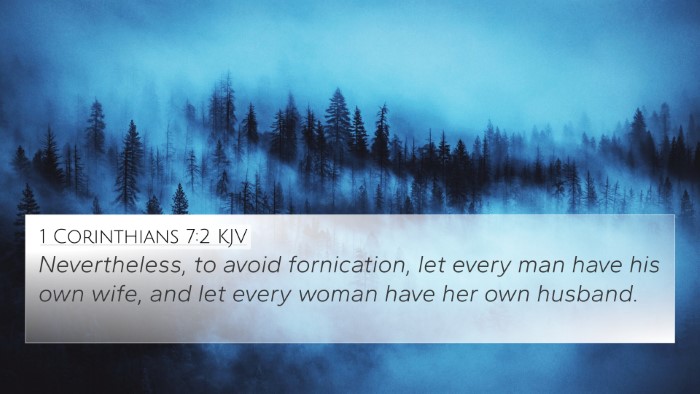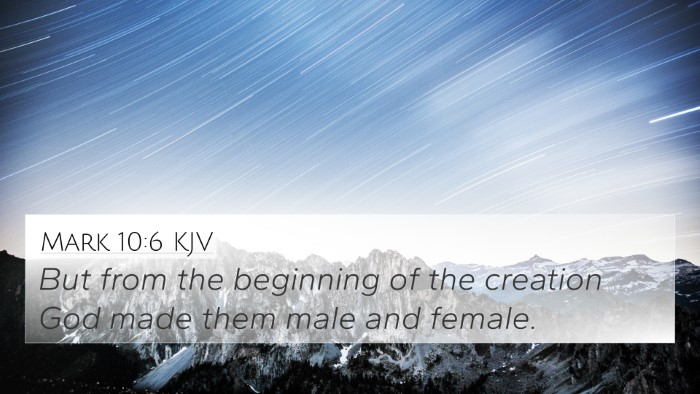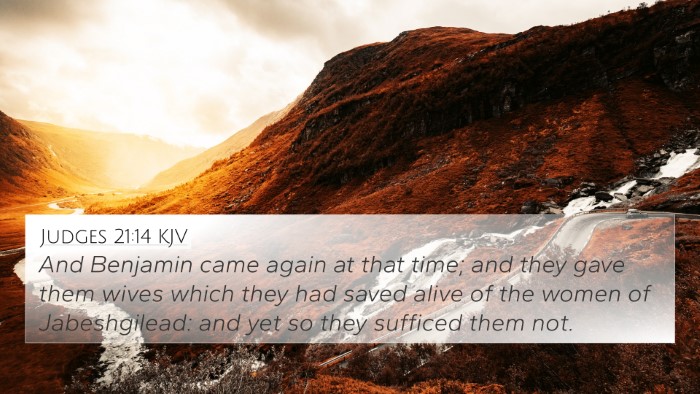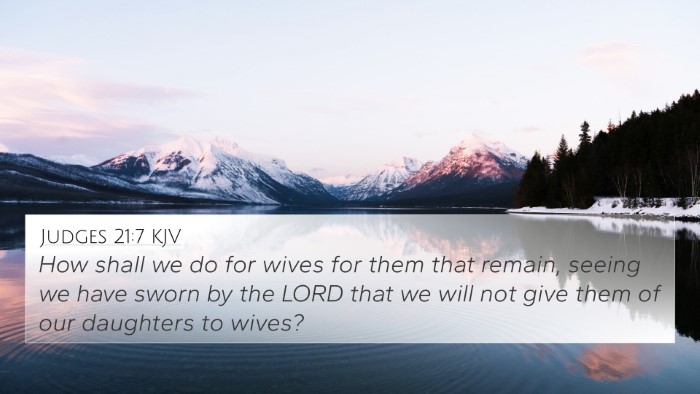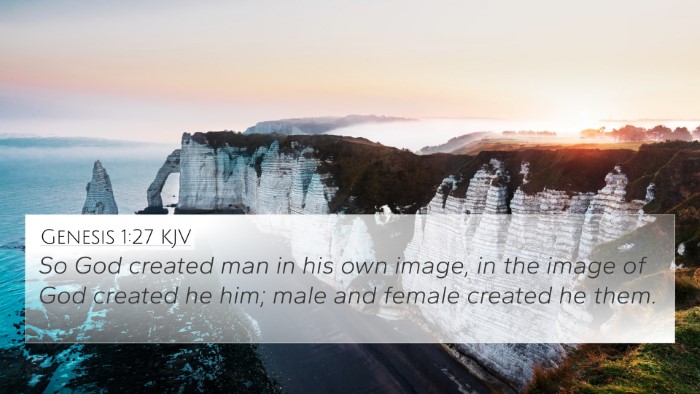Understanding Judges 21:22
Judges 21:22 provides a compelling narrative that reflects the cultural and moral complexities of the time of the Judges. The verse is as follows:
"And it shall be, when their fathers or their brethren come unto us to complain, that we will say unto them, Be favorable unto them for our sakes: because we reserved not to each man his wife in the war: for ye did not give unto them at this time, that ye should be guilty."
Verse Meaning and Interpretation
This verse is part of a larger narrative concerning the tribe of Benjamin after a civil conflict with the other tribes of Israel. The context of this verse reveals a desperate situation where the other tribes seek to preserve Benjamin through unconventional means, knowing that a lack of women for the Benjamites would lead to their extinction as a clan.
Theological Insights
- Moral Compromise: Matthew Henry highlights the moral dilemmas faced by the Israelites, emphasizing how desperate circumstances can lead to questionable decisions.
- Divine Providence: Adam Clarke reflects on the sovereignty of God, noting that even in circumstances of human failure, God orchestrates outcomes for His purposes.
- Community Responsibility: Albert Barnes points out the Israelite community's responsibility to maintain unity and support among their tribes, illustrating the theme of collective identity in Israel.
Key Themes and Connections
Several key themes arise from Judges 21:22, including:
- Desperation and Human Solutions: The lengths to which the Israelites go to save the tribe of Benjamin highlight the desperation felt during this turbulent time.
- Inter-tribal Relations: This situation emphasizes the bond and responsibility that the tribes had toward one another.
- God's Mercy: The decision to allow the Benjamites to take wives from Shiloh reflects God’s mercy in restoring fellowship among His people.
Cross-References for In-Depth Study
Judges 21:22 can be cross-referenced with several other scriptures that echo similar themes of community, identity, and divine intervention:
- Genesis 38:6-11 - The importance of lineage and family in securing the future.
- Deuteronomy 21:10-14 - Instructions regarding marrying women from conquered lands, showing God’s law on marriage.
- 1 Samuel 14:24-30 - The implications of oaths and their consequences for the community.
- 2 Samuel 2:18-25 - The struggles among tribes during David's rise to kingship, reflecting internal conflicts.
- Isaiah 54:5 - God as the redeemer and husband to His people, hinting at restoration and unity.
- Matthew 22:28-30 - The teaching of Jesus on the resurrection and the nature of relationships in heaven.
- 1 Corinthians 12:12-27 - The body of Christ as a metaphor for unity among believers.
Exploring Additional Insights
Through comparative Bible verse analysis, we can deepen our understanding of Judges 21:22:
- Inter-Biblical Dialogue: The themes present in this verse evoke conversations with the New Testament, wherein the church is seen as the body of Christ, tasked with maintaining unity and caring for one another.
- Thematic Connections: The theme of God’s mercy and restoration seen here parallels New Testament teachings on grace and redemption.
- Comparative Studies: The narrative parallels with the concubine at Gibeah in Judges 19, revealing the continuing moral decline in Israel during the era of the Judges.
Conclusion
Judges 21:22 encapsulates the complexities of community, morality, and divine providence during a tumultuous period in Israel's history. By engaging with this verse through cross-referencing and thematic connections, one can discover profound insights into the nature of God's interactions with His people and the responsibility of communal unity.
